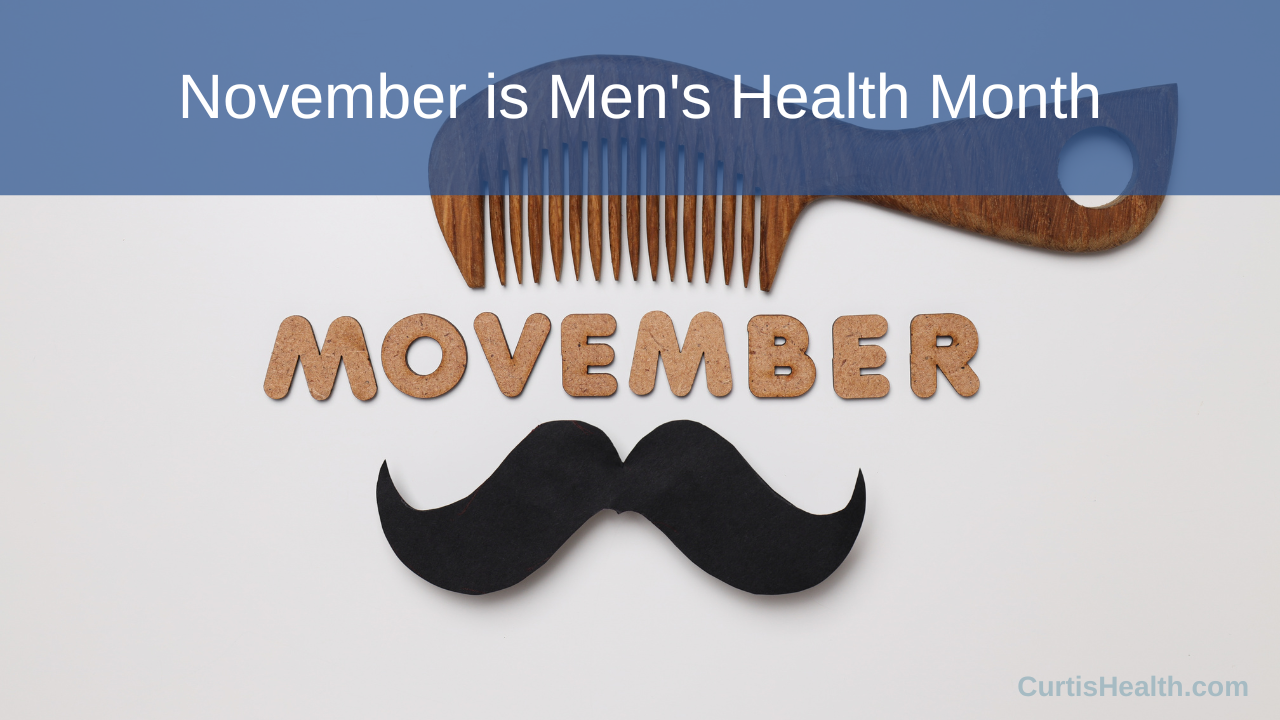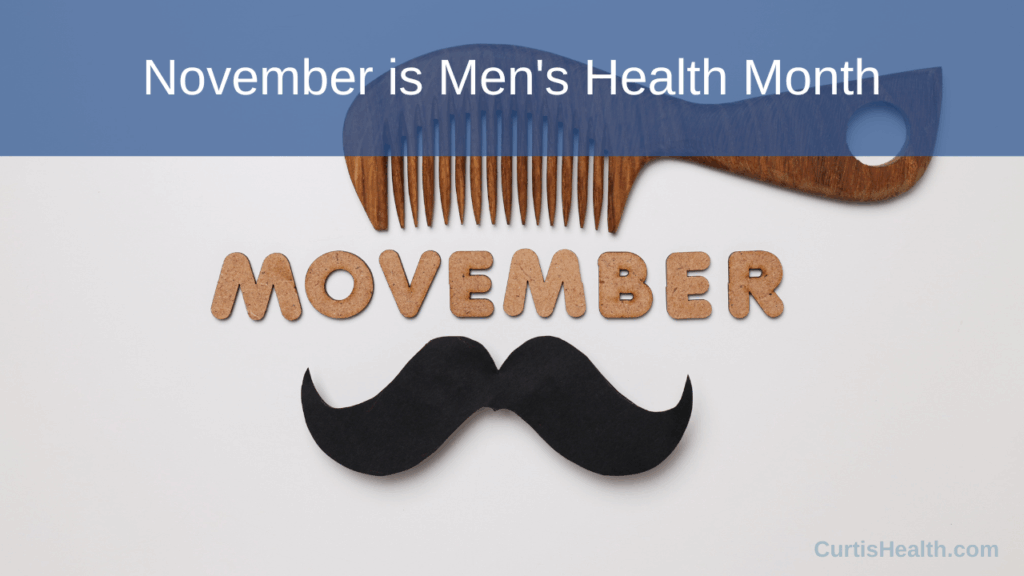Movember is a global charity event that focuses on men’s health. Each November, participants grow moustaches to raise funds and awareness for major issues affecting men, including prostate cancer, testicular cancer, and mental health and suicide prevention.
There are many ways men can make their health a priority. Men can prioritize their health by focusing on regular check-ups and screenings, eating a balanced diet, partaking in consistent exercise, managing stress, getting enough sleep, and building strong social connections. Taking a preventative approach through routine medical visits is key to catching potential health issues early. Here are some areas in more detail that can help men make their health a priority.
Medical and preventative care
- See a doctor regularly: Schedule annual physicals to monitor key health markers like blood pressure, cholesterol, and blood sugar.
- Get screened: Undergo necessary screenings for conditions like certain cancers (prostate, colorectal, lung) to catch them early.
- Stay up-to-date on vaccines: Get recommended vaccinations to protect against illnesses like the flu or shingles.
- Be your own advocate: Don’t hesitate to schedule an appointment if you notice something feels off with your body.
Lifestyle habits
- Eat a healthy diet: Focus on a diet rich in fruits, vegetables, whole grains, lean protein, and healthy fats, while limiting processed foods, added sugars, and unhealthy fats.
- Exercise regularly: Aim for at least 150 minutes of moderate-intensity aerobic activity per week, along with muscle-strengthening activities at least twice a week.
- Prioritize sleep: Aim for seven to nine hours of quality sleep per night to support both mental and physical health.
- Manage stress: Find healthy ways to cope with stress, such as exercise, hobbies, mindfulness/meditation, or talking to someone you trust.
- Avoid smoking and excessive alcohol: If you smoke, seek help to quit. Limit alcohol consumption to reduce risks of various health problems.
- Maintain a healthy weight: Work towards a healthy body weight through a combination of nutrition and exercise to lower your risk of conditions like diabetes and heart disease.
Mental and social well-being
- Tend to mental health: Pay attention to your mental health and seek professional help when needed. Talking to a friend, family member, or healthcare provider can help manage stress and anxiety.
- Maintain strong social connections: Stay connected with family, friends, and community to prevent loneliness and social isolation.
- Encourage work-life harmony: Make time for leisure, hobbies, and set boundaries to avoid burnout.
**********************
MaryAnna Robbins CSEP-CPT, OFC RHEP – Group Exercise, Resistance Trainer, Aqua Fitness, Yoga Fitness, Pilates Mat Fitness




